Audits and Certifications
“Audits are a picture in time, a snapshot of a company’s performance.” – Anne Manshot, Can a picture say more than a thousand words? Examining the effectiveness of social compliance auditing

Benefits and limitations of audits and certifications
Audits and certifications play a role in a company’s due diligence program and may help identify potential risks and opportunities for improvement. However, they are not effective as stand-alone programs, and companies should be aware of their benefits and limitations. When conducted ineffectively or as the sole method of verification, audits may provide false confidence and mask unfavorable human rights and labor issues. Additional actions, such as triangulating data sources and engaging workers, are needed to surface potential risks to workers, to which companies may respond. Audits and certifications may benefit and contribute to a strong human rights due diligence program, but companies should also understand the potential limitations and variability in the quality of social audits and certifications to better identify risks of forced labor.
Best practice when auditing or certifying
Strong audit and certification programs incorporate various practices, including comprehensive standards, highly trained third-party assessors, the incorporation of seafood worker perspectives, regular unannounced audits, and robust, effective grievance mechanisms. In addition. Best practices require audits and certifications to be considered as part of a comprehensive due diligence program that includes worker verification, effective grievance channels, and responsible recruitment.
Each seafood industry has its particular nuances with regard to audits and compliance. Hence, when conducting social audits, working with third-parties that understand the particular social responsibility challenges within the supply chain being examined (whether it’s a region, environment, or type of facility) will help strengthen the relevance of the findings. Auditors participating in the Association of Professional Social Compliance Auditors (APSCA) will be better suited to identify worker-raised issues while supporting worker privacy.
For audits and certifications to be a credible part of a social responsibility program, they must also include on-the-ground verification of information, preferably by workers or worker organizations. For more about receiving information from workers, see RISE guidance on grievance, remediation, and other processes driven by, or designed specifically to support, seafood workers.
The tools below provide support for companies seeking to conduct social audits as an element of their overall due diligence program.
Verité’s Fair Hiring Toolkit provides guidance on best practices for conducting audits.
Walk Free Foundation provides suggestions for Questions to Ask During an Audit to Identify Labor Violations and Example Questions to Ask Employees During a Social Audit.
Leveraging seafood certifications with social components
Companies may use social and seafood certifications that include social components as a tool to improve the social responsibility of seafood products. It is important for businesses to understand the components of a social certification when choosing which program to adopt. Robust certification programs incorporate a variety of due diligence mechanisms, including
comprehensive standards, highly trained third-party auditors, seafood worker interviews, unannounced audits at regular intervals, robust and effective grievance mechanisms, and requirements for making improvements to practices as needed.
The ISEAL Alliance may be a helpful reference for companies seeking to differentiate between certification programs. ISEAL represents best certification practices, and any member must meet a demanding accreditation process.
The seafood-specific social benchmark tool created by Global Seafood Sustainability Initiative (GSSI) in collaboration with the Sustainable Supply Chain Initiative (SSCI) of The Consumer Goods Forum (CGF) of The Consumer Goods Forum (CGF), may become a valuable resource for seafood companies specifically looking to research different audit and certification options. Once published, the benchmark will consider the specificities of seafood harvest and processing within the audit and certification space.
As a best practice, companies should take time to understand the components addressed by a certification’s standard and the parts of the supply chain that it covers. No certification alone can provide the supply chain information a company needs for robust due diligence, so a company will also have to identify the additional mechanisms for verification and enforcement that should be conducted.
See: RISE: Seafood Certifications: Seafood Certifications with Social Elements and Certification Initiatives.
Beyond social audits and certifications
Social audits are an important tool for due diligence. It is critical for companies to adopt a multi-pronged approach to identifying supply chain conditions in order to best understand the labor rights challenges that seafood workers may experience. Communication channels outside of audits may provide seafood workers safe methods to report on their conditions and reduce the potential for negative consequences or reprisals.
- Companies should implement worker voice channels, which include gathering data from seafood workers themselves and establishing robust, safe, and effective grievance mechanisms. Worker voice channels should be credible, independent, and linked to remediation.
- Third-party service providers need to offer strong ethical practices and perform risk assessments to ensure no harm is done via the collection of social audit data.
- Companies should seek to promote supply chain transparency by disclosing the location of their suppliers and associated certifications, and by reporting publicly on working conditions.
Companies should regularly evaluate and report the effectiveness of current efforts. In doing so, they can move beyond a reliance on social audits to build robust and effective social responsibility programs of which audits are only one part.
